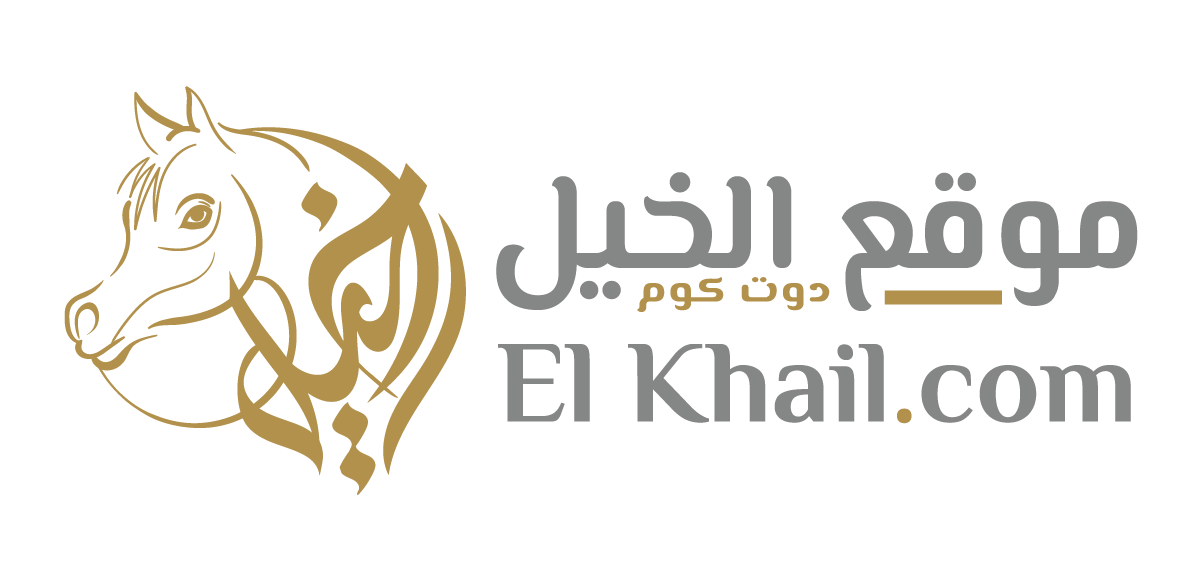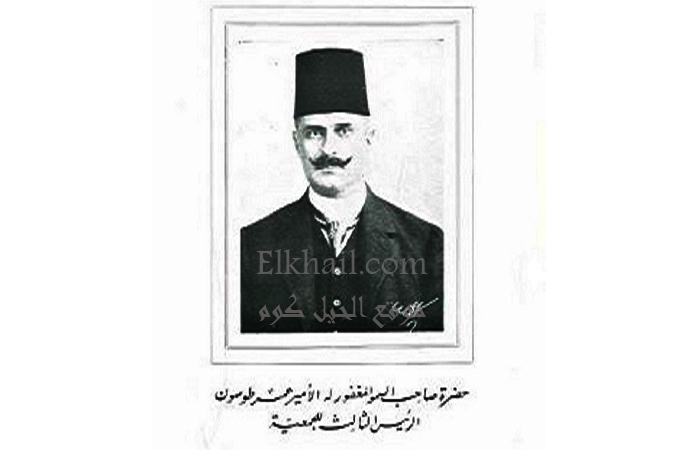Prince Omar Toson succeeded in combining affiliation with the ruling house and closeness to the people and their various sects, broad wealth and hard work, engaging in public work, immersion in study and composition, adherence to the issues of the homeland and a sense of the concerns of the Islamic world.
Above all, he possessed high chivalry that rose to the aid of the desperate and the needy of individuals, institutions and nations. He put his money and prestige in the service of his country.
Prince Omar Toson is the second son of Prince Tousun bin Muhammad Said bin Muhammad Ali, the founder of modern Egypt. He was born in Alexandria on Sunday Rajab 5, 1289 AH corresponding to September 8, 1872 AD. When he reached the age of four, he lost his father.

His first study was in the palace, then he completed it in Switzerland, and after graduating, he moved between several European countries, such as: France and England, and watched what they were of civilization and progress, and stood on the progress and development they reached in the fields of industry and agriculture, and returned home loaded with provisions Great knowledge and culture, proficiency in English, French and Turkish, and a determination to reform and renew his country.
Prince Omar Toson, producer of army and police horses
Prince Omar Toson led many experiments to produce strong horses in the Egyptian country; To serve the army and police. He took over the presidency of the Horse Commission in 1887 AD. After the failure of the commissioners, the work of horse breeding was assigned to the Royal Agricultural Society in the Department of Buffalo Breeding in Bahteem In 1907 AD.
In 1892, the Horse Commission was formed, headed by Prince Omar Toson; To work on improving horse production and selecting mares and keeping them in books, this commission was estimated at 1,000 pounds.
During 1908 AD, the Animal Breeding Department of the Royal Agricultural Society was established, which bore the burden of breeding, and was also entrusted with the work of the commissioners, and this department worked to increase the number of horses.
In 1914, the Royal Agricultural Society was able to obtain pure-bred horses from the stables of Khedive Abbas Helmy II, Prince Muhammad Ali and Lady Planet.
In 1919, the Society purchased 18 heads from Lady Wentworth’s stables to improve production.
In 1928, the association chose a place on an area of 55 acres in a desert spot located 20 kilometers from the heart of Cairo. It established more spacious stables and the latest models, and left a large space around it. To tame the offspring, it was called “Kafr Farouk Stables”.
Thus, the Royal Agricultural Society reached what it was aiming at in establishing this section, which is to continue to preserve and preserve the purebred Arabian horses, for which Egypt was famous, and which preserved their lineage over the long term, without mixing with any other lineages, and the pure blood and origin remained preserved. proportions.
During the reign of Prince Omar Toson, the Department of Horse Breeding was assigned to Dr. Ahmed Mabrouk, and he was allowed to travel to the Arabian Peninsula and Iraq; To search for divorcees that are in line with the Society’s program, according to what Dr. Ahmed Mabrouk wrote in his book “A Journey to the Country of the East,” and he commissioned Dr. Abdel-Alim Ashoub to record the history of the horse.
Omar Toson, pioneer of agricultural research and model villages
Omar Toson assumed the presidency of the Royal Agricultural Society in the year (1351 AH 1932 AD), and it was concerned with agricultural affairs in Egypt and working on its renaissance.
Tosun rose up in the association, and expanded its field of work, and his passion for science and his love for scientific research had an impact on guiding the association, and experiments were conducted on various agricultural lands, methods of reform, and the appropriate fertilizers, and several strains of cotton, wheat and barley were produced, and for the first time in Egypt were established under his supervision, drainage experiments Underground and its effect on plant root and growth.
Toson was interested in insect research, and announced a financial prize of fifteen thousand pounds to whoever invents a cure for the extermination of the cotton leafworm, and encouraged the Society to prepare large quantities of excellent seeds for major crops; for distribution to farmers.
It is mentioned to him that he established a number of model villages equipped with the necessary facilities, and sent a letter to the Egyptian government proposing that it start an organized program to reform the villages of the Egyptian country.
During his presidency, the association tended to publish some scientific literature related to agriculture, such as Harmful Insects in Egypt by Wilkes, Laws of Courts by Ibn Mamati, Agricultural Conditions in Egypt by Girard, and Arabian Horses by Prince Muhammad Ali, as well as publications that include The results of scientific research carried out by the association.
Omar Toson’s scientific, social, national and athletic role
Prince Omar Toson was interested in the scientific, social, national and sports aspects. In social affairs, it is sufficient evidence of his interest in them that he headed most moral and literary societies, such as the Association “Preventing Intoxicants” and other bodies, which he included in his sponsorship, and he spent on them abundantly, and he is the author of books of great value. ; Because of the accuracy of its historical investigations, and his scientific trips in the desert are considered by specialists from the point of view of his services to science.
Specialists described Prince Omar Tousson as being almost one of the princes most concerned with public affairs, in addition to his positions in the countless national movement, and he was the first to think of forming the Egyptian delegation in 1918 to demand freedom and independence.
Prince Omar Toson is the legitimate father of Sporting Club, where he remained the club’s president since its founding in 1890 until his death in 1943.
The Sporting Club was officially inaugurated in the first horse racing concerts, and the club’s management at that period was still managed by a general committee chosen from among the members. His deputy, in addition to Khalil Pasha Khayat, Hassan Mohsen Pasha, Burton Pasha, A.E. Bianchi, Baron J. Mitch, Parker, Richmond, and J.B. Rudkanki.
The committee continued to run the club until the outbreak of the revolution, and next to it was an executive committee and a horse racing committee, the most important committee generating a large return that contributed to financing the club’s budget, usually headed by the club’s president or his deputy, in addition to some other sports committees, the most famous of which were polo and tennis at that time.
Sporting remained under the auspices of the royal throne and its honorary chief, either the Khedive or the King.
his death
The prince’s life was full of great works, and he occupied his time with research, writing, participating in public work and contributing opinion to the issues of the country. He was not like most members of the royal house who were occupied by their empty lives, but rather he was close to the common Egyptians, he considers himself one of them, and works to improve their condition according to his ability.
More than ten years before his death, he wrote a will for his full library, which contained about eight thousand volumes of precious books, manuscripts, pictures and maps, which rarely meet with anyone. He recommended that this library be given to the Military Museum, the Greco-Roman Museum in Alexandria, and the Alexandria Municipal Library.
Prince Omar Toson died on Wednesday (30 Muharram 1363 AH = January 26, 1944 AD), and he had recommended that no funeral be held for him, and King Farouk fulfilled his will, confining himself to the funeral of the body in which ministers, princes and senior state officials participated.






